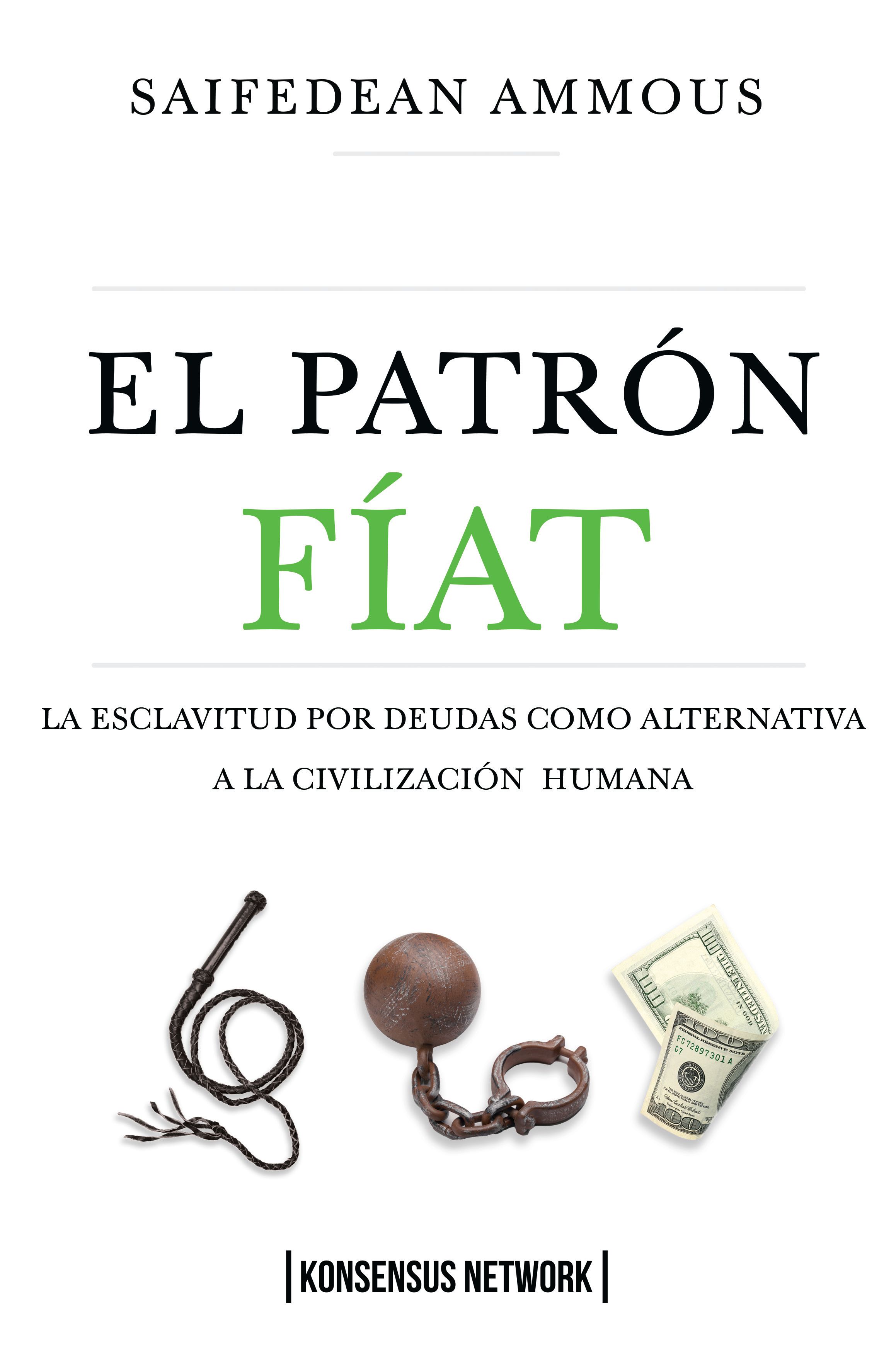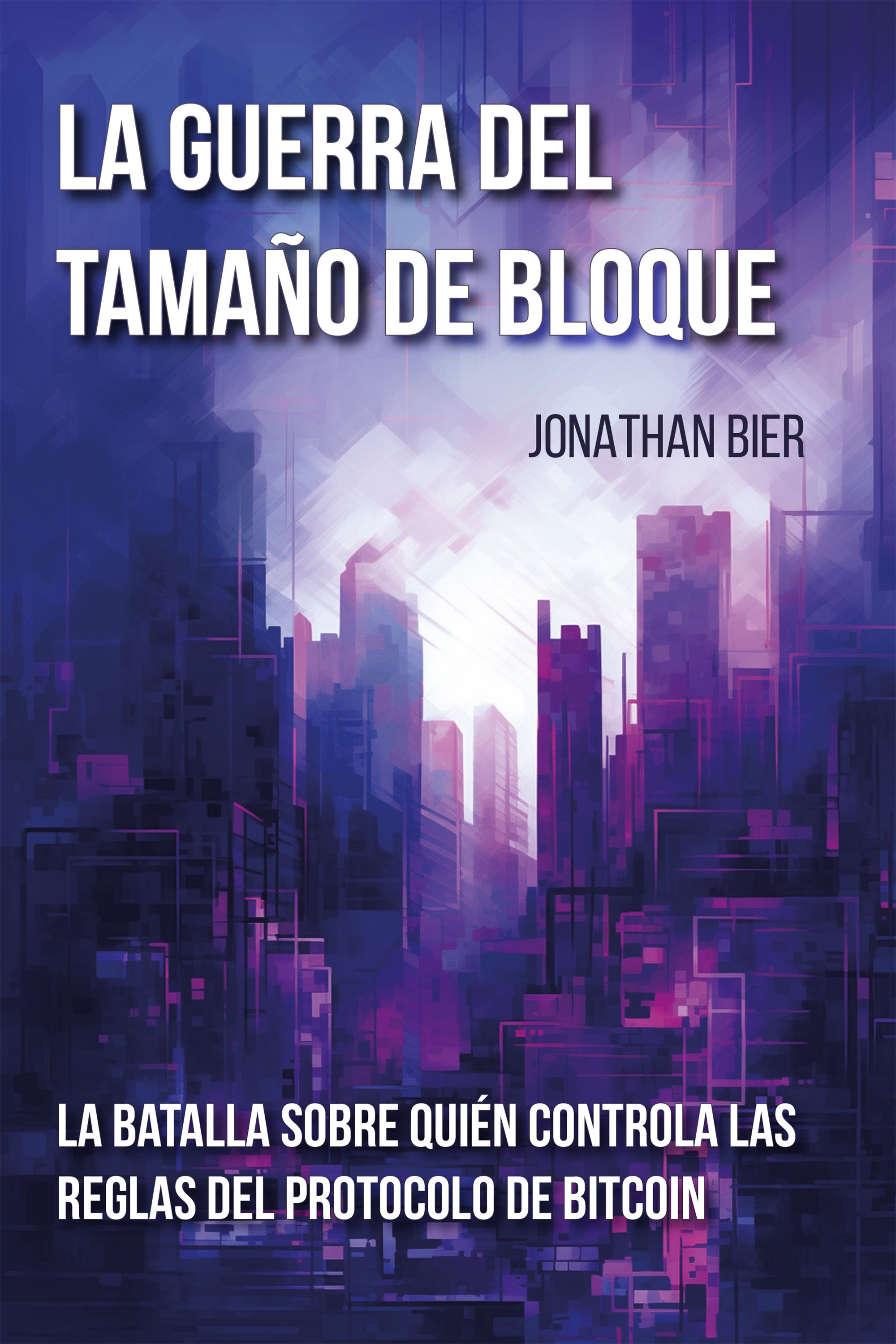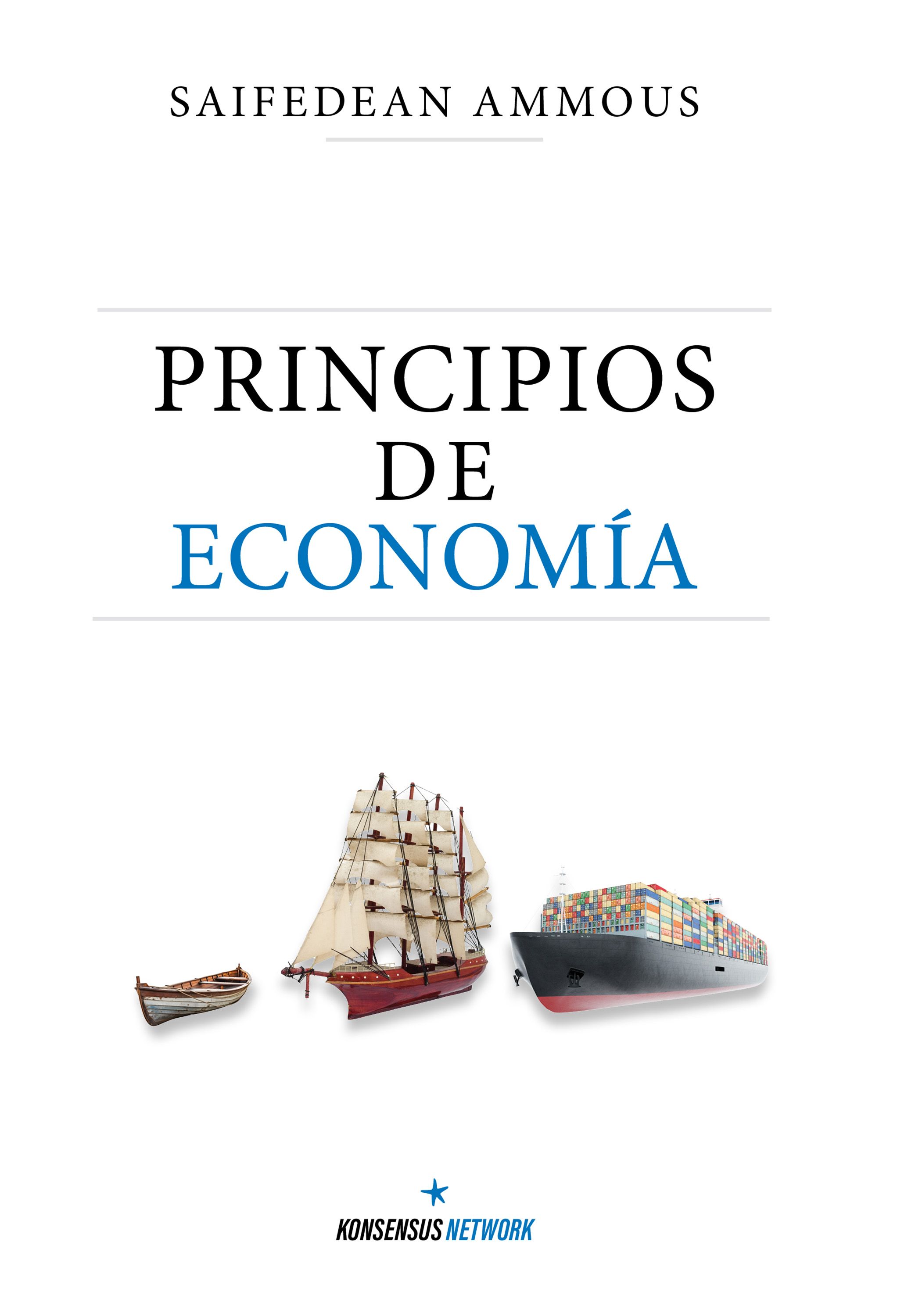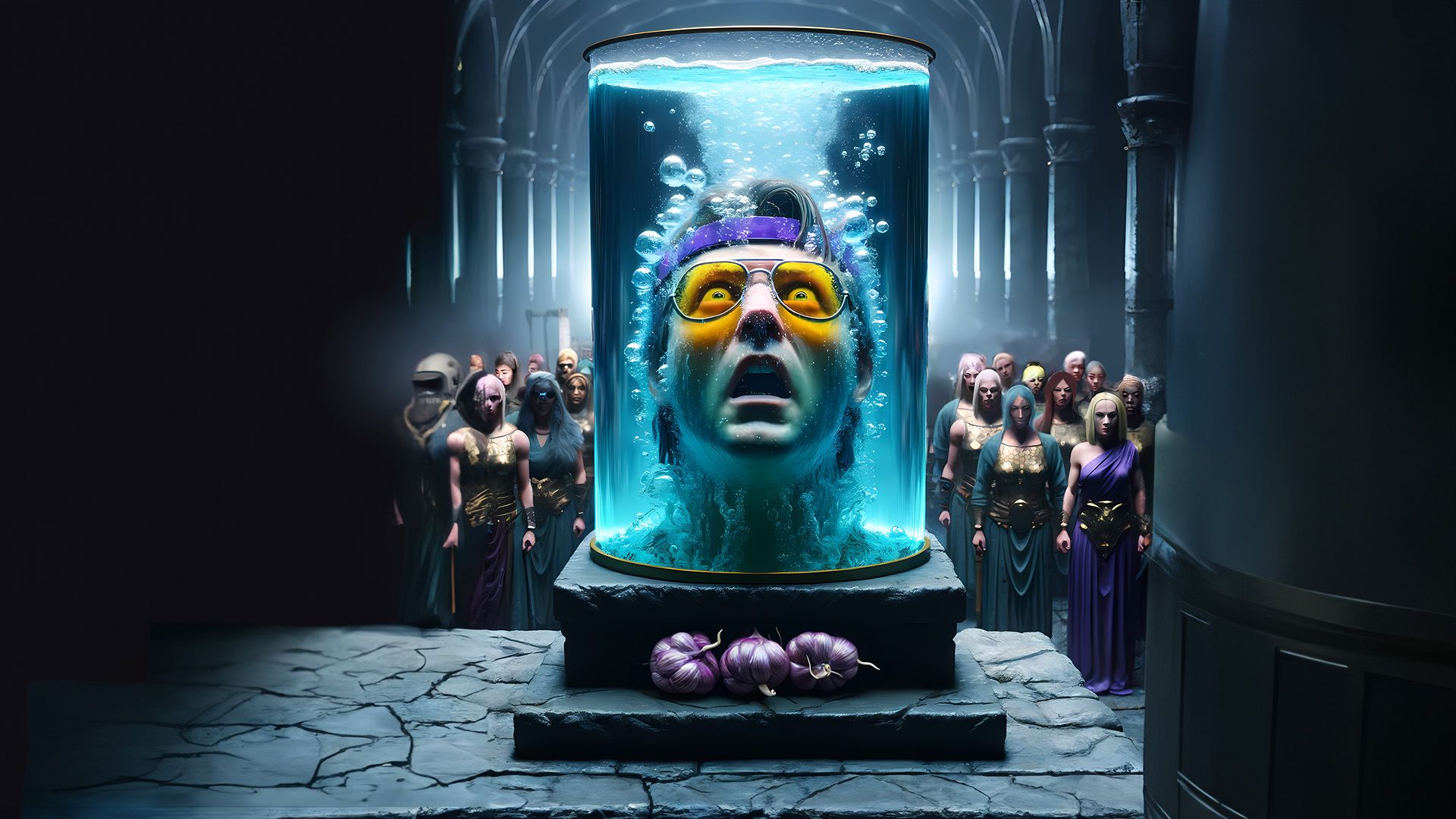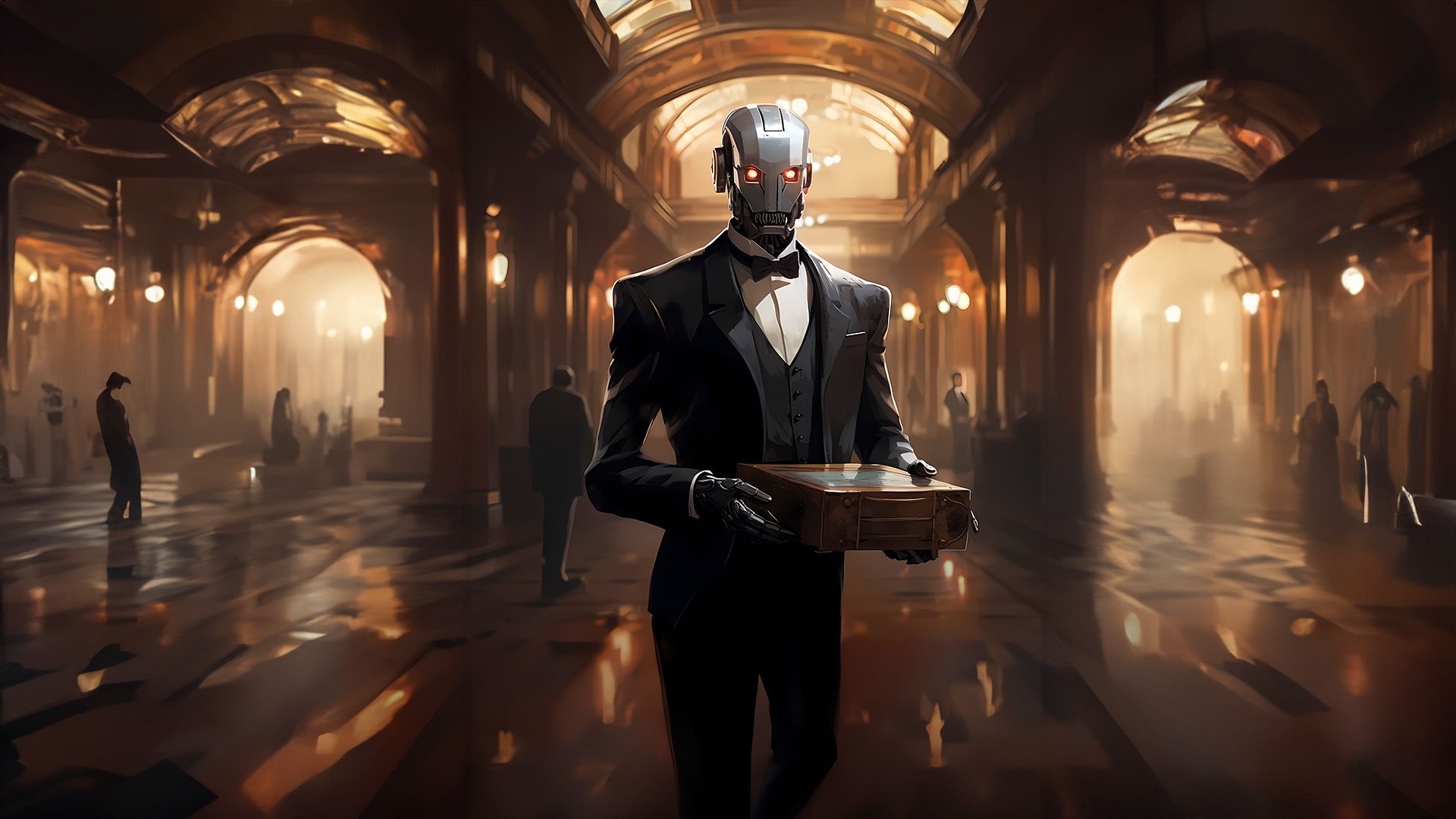·Gonzalo Coelho · fiction · 18 min read
The Journal's Alchemists
"I have discovered a truly marvelous proof of this, which this margin is too narrow to contain."
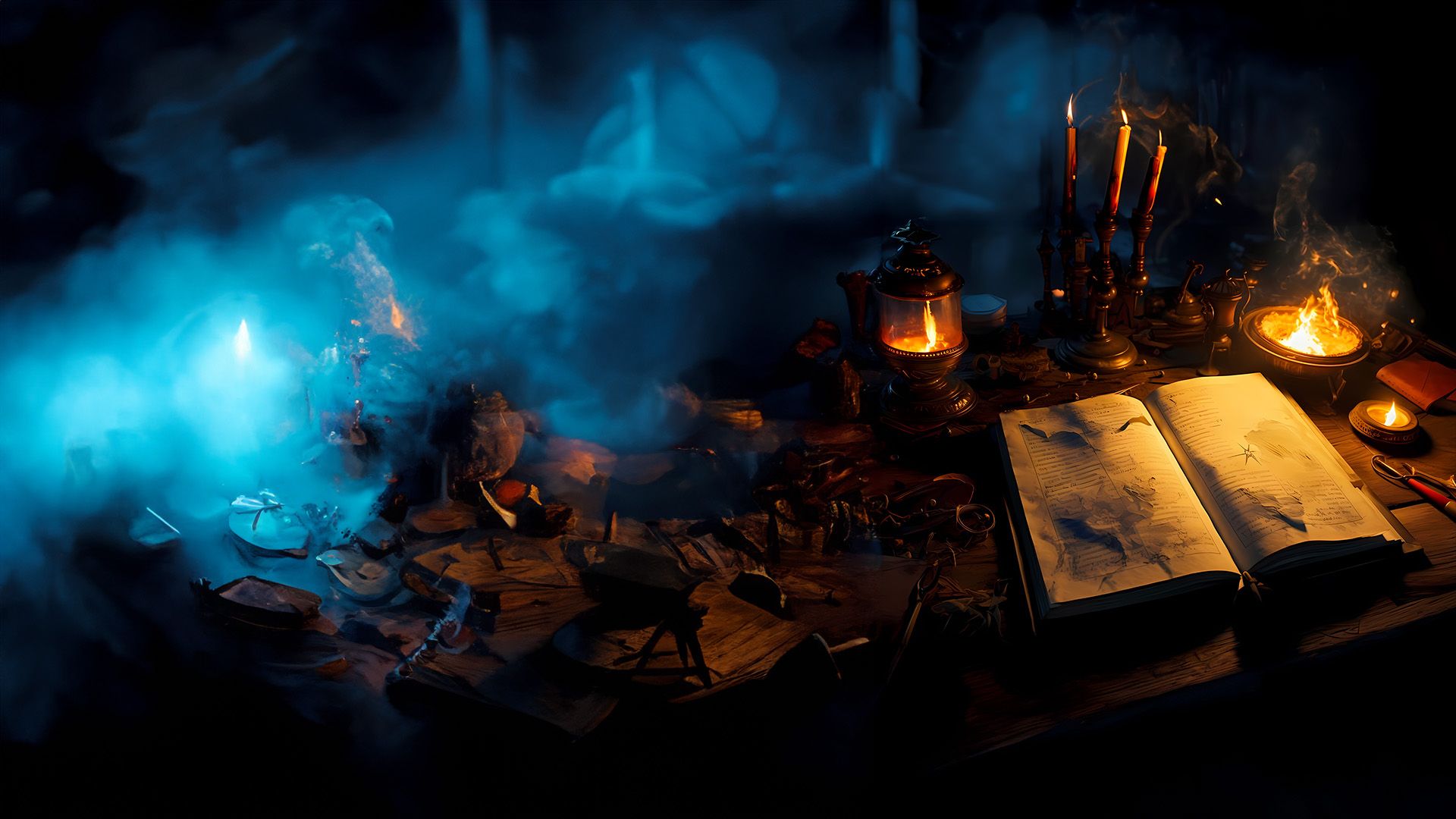
In a dimly lit study adorned with ancient tomes and peculiar artifacts, a figure hunched over a weathered desk, immersed in the calculations that consumed his thoughts. Pierre de Fermat, a man of mathematical brilliance, was in a race against time, though he hardly recognized it as such. The room was permeated with the scent of aged parchment and the weight of centuries-old knowledge. The candlelight cast eerie shadows across Pierre’s furrowed brow as he delved into a labyrinth of equations. He had always been driven by an insatiable curiosity, an unyielding desire to decipher the mysteries of numbers. Yet, as the years pressed on, an unsettling sensation gnawed at his mind. Time, it seemed, was slipping through his fingers.
Pierre’s eyes darted across the pages, his fingers dancing nimbly over the paper. As he jotted down his latest insights, his thoughts veered into the realm of what lay beyond the numbers themselves. Outside the study’s narrow windows, the moon hung like a guardian of secrets, casting a silvery glow upon his work. Hidden beneath his intellectual bravado was a sense of urgency — an unseen clock that ticked away the moments.
As Pierre wrestled with the symbols, the weight of unfinished business settled upon him. The hours seemed to slip past with the speed of sand through an hourglass. A manuscript lay open on the desk, its pages covered in his distinctive handwriting. The infamous margin, written long ago, had caused such a stir among mathematicians, and now it held his attention. Those cryptic words he had penned in the past seemed to beckon to him, a reminder of a challenge left unresolved. He traced his words, his musings on the problem that had tantalized him for years, and he allowed his thoughts to wander. Among those carefully inscribed lines, the declaration stood bold:
“I have discovered a truly marvelous proof of this, which this margin is too narrow to contain.”
Pierre understood his initial proof, tucked from prying eyes, was flawed. Fueled by determination, he toiled tirelessly through countless nights to correct it. The margin’s message was an inspiration, a journey extending beyond pages into the very fabric of his existence, and a reminder that his reputation was at stake.
What did it mean, he wondered, to leave a legacy? Was it merely about the theorems he penned, and the problems he posed? Or was there something more profound, something that transcended the boundaries of numbers and logic? Pierre’s eyes lingered on his words, his contemplation delving into the depths of existence itself. Time was a cruel mistress, he mused, as he gazed at the candle’s flickering flame. It burned steadily, yet its moments were fleeting.
And yet, amidst the shadows and the calculations, Pierre found solace. His pursuit of knowledge, his ceaseless quest to understand, gave him a sense of purpose that transcended the bounds of mortality. As the hours waned, his pen moved with renewed vigor, etching symbols onto the paper. He was running out of time, that much was certain. But in the quiet solitude of his study, Pierre found a semblance of eternity. The problem, like the mysteries of life, would continue to challenge those who came after him. And though the ink on the pages would fade, the echoes of his thoughts would persist, a testament to a mind that defied the constraints of time.
In the final moments before dawn, Pierre’s weary hand paused. A sense of calm enveloped him as he gazed at the solution. It wasn’t the answer he had relentlessly pursued, nor the conclusive resolution he had yearned to uncover. Yet, it was an answer, a fragment of the enigma that would one day intertwine with the whole. A knowing smile, one born of contemplation, tugged at the corners of Pierre’s lips as he studied his creation. The gentle flicker of the candle’s flame cast a soft glow upon the parchment. And in that serene moment, he yielded to the elegance of the unresolved.
Pierre rose from his desk, his steps deliberate and heavy with a lifetime of purpose. He approached an old bookshelf that held volumes of knowledge collected over the years. With a careful hand, he selected a timeworn tome, its leather cover bearing the scars of age. Inside, amidst the pages filled with wisdom, he found the passage he sought. He retrieved a quill and inkwell and, with a solemn determination, scratched his name atop his theorem postulate in the book, signaling to any future alchemist interested in the topic to continue the pursuit.
As he placed the altered page on the desk alongside his unfinished work, Pierre de Fermat, the brilliant mathematician, accepted defeat with grace. And in that serene moment, he yielded to the elegance of the unresolved. It was a journey he had embarked upon with the understanding that the destination might elude him. He had often wondered if these last couple of years were an earnest struggle or mere motions through time. Perhaps, in the depths of his subconscious, a plan had always existed to entrust the pursuit to those who would follow. An unspoken understanding that the legacy was greater than any individual revelation.
With a satisfied sigh, Pierre closed his eyes. The weight of time seemed to lift, replaced by a sense of contentment. As the first rays of dawn broke through the window, illuminating the study, he leaned back in his chair. The journey was not over, but he had traveled far enough. And so, Pierre de Fermat, found a quiet resolution. He had not conquered the problem that bore his name, but he had embraced the journey that the problem had set him upon. The candle burned low, its feeble flame a symbol of his relentless pursuit of knowledge, flickering against the ever-present current of time.
The path carved
Santiago’s eleventh birthday party was not as disappointing as he expected. He and his buddies played in their unkempt backyard for a few of those endless summer hours only pre-teen boys are privy to. They started playing catch, but it grew into something more complex involving made-up powers and detailed descriptions, rules, and modifications that would make any Dungeons & Dragons game master proud. The elaborate specifications tended to last longer than the actual play time. Santiago and his buddies would grab withered planks and wield them as the mythical weapons they envisioned.
Amidst fun and games, Santiago glanced through the vinyl double-hung window, catching his parents arguing in a playful manner while preparing the sliders. He realized he was thirsty, momentarily abandoning his adventuring party that had been assembled in his backyard and entered the house. Upon entering the kitchen, he heard his mom joking about those leftover planks’ broken dreams of becoming a humble shed, the one long since forgotten by “the man of the house.” “That man left them to rot and be battered by children’s play,” she remarked, as if his dad were just a mere spectator.
In fact, Santiago’s father had spent months building a huge bookshelf (for a basement he would not set foot in) to hold random books that, judging by his reading pace, he would never finish. Books about math, history, chemistry, music, and such, rested immaculate and untarnished, waiting for someone to thumb the pages so that they would not stack so neatly when closed. Maybe now Santiago was eleven, he’d be able to understand Introduction to Electrodynamics by David J. Griffiths, justifying its place on the enormous bookshelf.
“Isn’t it nice you and your buddies finally got some use from those forsaken planks?” A question that made Santiago cringe from within, but he replied with bare minimum politeness. “Yes, mom.” Santiago’s father replied with a silent hug as usual. That was good enough. He was not there in the kitchen with his wife. He was preoccupied with matters of greater worth.
The Surrogate Mentor
Santiago’s dad met his wife around the same age as Santiago is now. Mom knew being chatty was never a quality of her partner. He fancied spending hours building anything (except for her shed). He was a good man. She wondered about having a second child. A child of their own.
It’s not that they didn’t love Santiago like he was their own. If anything, they wanted to introduce a balancing force to his life.
It was not so much that Santiago disliked other kids; he enjoyed playing with them, but he couldn’t care less about what they had to say or what was on their minds. Ever since he was a toddler, Santiago displayed exceptional command of logic compared to his peers. Not only was he smarter, but he emphasized how much of their focus was devoted to topics he deemed meaningless. They talked about other people talking about video games, how much money they spent on a GPU, and argued about which character from the Marvel movies could actually lift Thor’s hammer. They were kids, just like him. But he rarely found common ground in their interests. There was one time when he brought his brand new Rubik’s cube to school to see if the other kids could figure out a way to decipher it. They were thrilled at first, but by the second school break, some kid was able to solve it by memorizing an algorithm he found on the internet. Soon everyone lost interest in the puzzle. In Santiago’s eyes, they had all missed the point.
Santiago is cunning, but he aspires to be even more so. He wanted to be as intelligent as his father and felt troubled by the idea of a “normal” life. What would happen when he died? What would he leave behind? Is his life’s purpose to leave a legacy? Maybe not something most eleven-year-olds are concerned with.
Putting the pieces together
The role-play in the backyard came to a close, and all guests gathered for a feast. Santiago pretended to listen to his friends’ conversation, but just like his father, he was somewhere else. He speculated about his father and their next project together. It was likely that was his surprise after all. They would always start something ambitious after his birthday. Last year, they spent the entirety of the summer programming a MIPS computer processor that had no chance of competing with its modern contemporaries, but Santiago could proudly say it was his effort. Whenever his father committed to something, he did not give up. When they stumbled upon a problem, he would find a way to make things work. And Santiago was starting to learn his ways. It didn’t matter if his father liked the activity much. He was trying to teach Santiago, and Santiago had an appetite for knowledge.
Santiago peeked through the kitchen door, trying to steal a glimpse of his father in search of some clue as to what was coming after all the guests left. He saw him eating cake. When Serge noticed his son looking at him, he silently lifted the piece of cake he was holding barehanded as though that were good enough for a toast and saluted him. There was something in the way he looked at Santiago. Something Santiago had not seen before. He recognized that he was not being looked at by a fatherly figure; he was being looked at by a long-lost old friend. Santiago replied with a military salute in conjunction with a poker face. He thought that was funny, and his dad agreed with a slight grin without forgetting that his mouth was still full.
The last guest had left, and his mother already had dinner ready. She was an early bird and had trouble sleeping, so they would often race to dine as early as possible whenever they could. Birthdays, gatherings, and similar events disrupted their regular schedule, so she made sure to have everything almost ready before Santiago’s friends left. Not-so-warm steak, with vegetables as ornaments. The once-steaming dishes now sat as lifeless remnants of a meal, their vibrant colors fading to a muted, unappetizing hue. Condensation had formed on the edges of the plates, like teardrops frozen in time. The gravy had congealed, now resembling a thick glaze that clung stubbornly to its surface. The vegetables surrendered their vitality to the cold air.
His mother would actually eat the green decorative plants for some reason that Santiago and his father did not really understand, but they paid no heed and let her be. She was secretly waging war against her husband by trying to make her son eat some vegetables, but she was losing on all fronts. Breakfast, lunch, and now dinner. She accepted defeat silently and tended to the wounded vegetables by storing them for the next day.
Santiago was underwhelmed by how hushed his father was. After all that cake, he still silently ate his way through dinner. Much of the talking was done by his mother, and it involved which distant relatives called to say happy birthday while he was outside. Though he didn’t remember these people all that well, he was happy they cared.
Dinner was over, and Santiago wondered if his father had forgotten about the surprise. He excused himself for not eating his vegetables and went to his room, disappointed by his apathetic father. Perhaps tomorrow.
Santiago ended the day with a WWI book he found in the basement library. He used to have a thing for fantasy and science fiction, but recently, learning about past events excited him more than any epic novel. It made him feel more mature.
There was a knock at the door.
“Come in.”
“Hey there.”
“Hey.”
“You thought I had forgotten, right?”
Santiago’s eyes filled with joy. “Yeah, I did.”
His father had something behind his back.
Santiago didn’t have much time to speculate as his father brandished an old book. Well, old was an understatement. The leather cover had deep cracks that were older than Santiago, and centuries of exposure to damp had all but ruined the leather. When water dried and evaporated, it drew out the leather’s oils with it. The book had suffered this process countless times since the day it had been bound.
“This is for you,” his father declared, as if he were an old king passing the crown to his heir, along with all the lands and power attached to his name.
Santiago received the huge tome with his hands facing upwards to gently assess the strength of the binding before opening it. He traced the heavily abraded engraving on the now obvious front cover. What he could not recognize was the archaic language it was written in. The barely visible markings on the cover resembled the Egyptian pictographic characters that he had seen in an anthropology book he found in the basement library, but there was something off about it. These seemed much simpler in their traces. The structure of the first 20 or so pages was suggestive of a thorough procedure with unknown goals. No pictures or drawings were provided. The rest of the pages looked like entries in a journal to Santiago. These were written in different languages that seemed more accessible to him. “What exactly is this?”
His father paused. “A legacy.”
“I don’t understand.”
“This book is special, even magical, you could say.
Revelations
As Santiago’s father stood in front of his son, his demeanor held a quiet resolve that might have appeared rehearsed to someone who knew Serge well. It was as if every step he took toward this moment had been measured, each word carefully chosen over the years. Deep within him, he carried a burden — an unspoken weight that had lingered in his thoughts for far too long.
“Son, it’s time you knew the truth. I am not your biological father.”
Santiago’s world came to a screeching halt. He stared at his father, his eyes widening, like the ground beneath him had just given way. Could this be a joke, a prank, or a lie? But deep down, he knew his father well enough to sense the sincerity in his voice. A whirlwind of emotions churned — confusion, disbelief, and a profound sense of uncertainty.
For a moment, silence enveloped them, broken only by the distant hum of the evening crickets outside. Santiago’s mind raced, grappling with the enormity of what he had just heard. His father watched him with a blend of worry and sympathy, waiting for his response. It took Santiago a few moments to find his voice. When he did, it was a fragile whisper. “What do you mean, Dad?”
It’s not like I simply adopted a random child. I made a pledge to a dear friend of mine to see to your good health and prepare you for the mission. You see, I am not sure how it works, but I like to believe that you have lived many lives before this one. You wrote an entry every time, and by some mystical process that only the first alchemist could understand, you are here. You can dump the book, but the cycle will go on regardless. There is nothing we can read about how it started and how to stop it. I think you should keep it and try to make the most out of it.”
This was not an elaborate trick. Santiago’s dad seemed quite nervous and took his time to find the right words. He pointed at symbols on the cover of the book. “See this? Thanks to more recent entries, we know this stands for “The Journal’s Alchemists.” My best friend was the last one, and he trusted me with the book before… before he became you. Check these out.”
Santiago renounced the book timidly, and his father took it and turned the pages to show him specific sections of the journal. Each journal entry followed the same pattern, but this one shook Santiago.
Charles Darwin
1859
On the Origins of Species
WHEN ON BOARD H.M.S. ‘BEAGLE,’ as naturalist, I was much struck with certain facts in the distribution of the inhabitants of South America, and in the geological relations of the present to the past inhabitants of that continent…
It went on for a couple of pages, but only included the introduction as a mere reference to his work. When Santiago had had enough time to examine the entry, his dad showed him another one, several pages back:
Pierre de Fermat Andrew Wiles Andrew Wiles
1637 1993 1995
Cubum autem in duos cubos, aut quadrato-quadratum in duos quadrato-quadratos, et generaliter nullam in infinitum ultra quadratum potestatem in duos eiusdem nominis
Pierre de Fermat
1660
De linearum curvarum cum lineis rectis comparatione dissertatio geometrica
From then on, it was Latin and just like Darwin’s section, it spanned a couple of pages.
“What does it all mean?” Santiago muttered.
“You are all of them. You share the same traits and interests. You want to know everything. You want to build great things. You aspire for meaning above pleasure and even happiness.” The last word broke under the weight of helplessness only a father can feel for his son departing on a voyage never to be seen again.
The awkward silence between the two reluctant men offered an opportunity for Santiago to ponder what he had just heard. His father had never let him down. The timing for an intricate joke was totally off.
“Wh-What should I do now? They were all geniuses; I am not a genius at anything.”
“You are only eleven. I am certain they all felt the same way when they were your age. You will have to work hard, but every entry in that journal has had an impact on humankind, and I know that you are capable of that. You want to leave your mark here. He was just like you when I first met him.
“You mean, the previous ‘alchemist?’”
“Yes. Every time I look into your eyes, I see him, albeit you do not share the same physical appearance. He only told me about this when he was about to die, but he had the same doubts as you do now.”
Santiago gestured with his hands, indicating his intention of grabbing the journal, and looked for the latest page that was not blank. There. He got it three-quarters of the way to the back cover. There was a decent chunk of vacant space left. The last entry was quite short and read:
Satoshi Nakamoto
2009
Bitcoin: A Peer-to-Peer Electronic Cash System
Santiago was speechless. He realized the implications of this and asked the most intriguing question in his mind. “Are we secretly rich? Was I rich?”
“If we ever find your private keys, yes, but I wouldn’t worry all that much about that. He never told me anything about his bitcoins before dying, so I suspect he might have lost them on purpose.”
They kept talking for an hour or so. By the end, the idea had started to grow on Santiago. He did not know it, but after that day, he would start living his life to the fullest, knowing that his destiny was to maintain this legacy of brilliance. He would not let it go to waste by being lazy or avoiding struggle. Nonetheless, he also followed his father’s teachings by staying humble throughout.
As Santiago’s father was making his way out, Santiago asked him, “Can I still call you Dad?”
“Of course, Son.” He said looking straight into his eyes with a nostalgic gaze of someone who is reliving past memories of past memories.
Want to read the Spanish translations Gonzalo collaborated on? Click on the book you are interested in!
